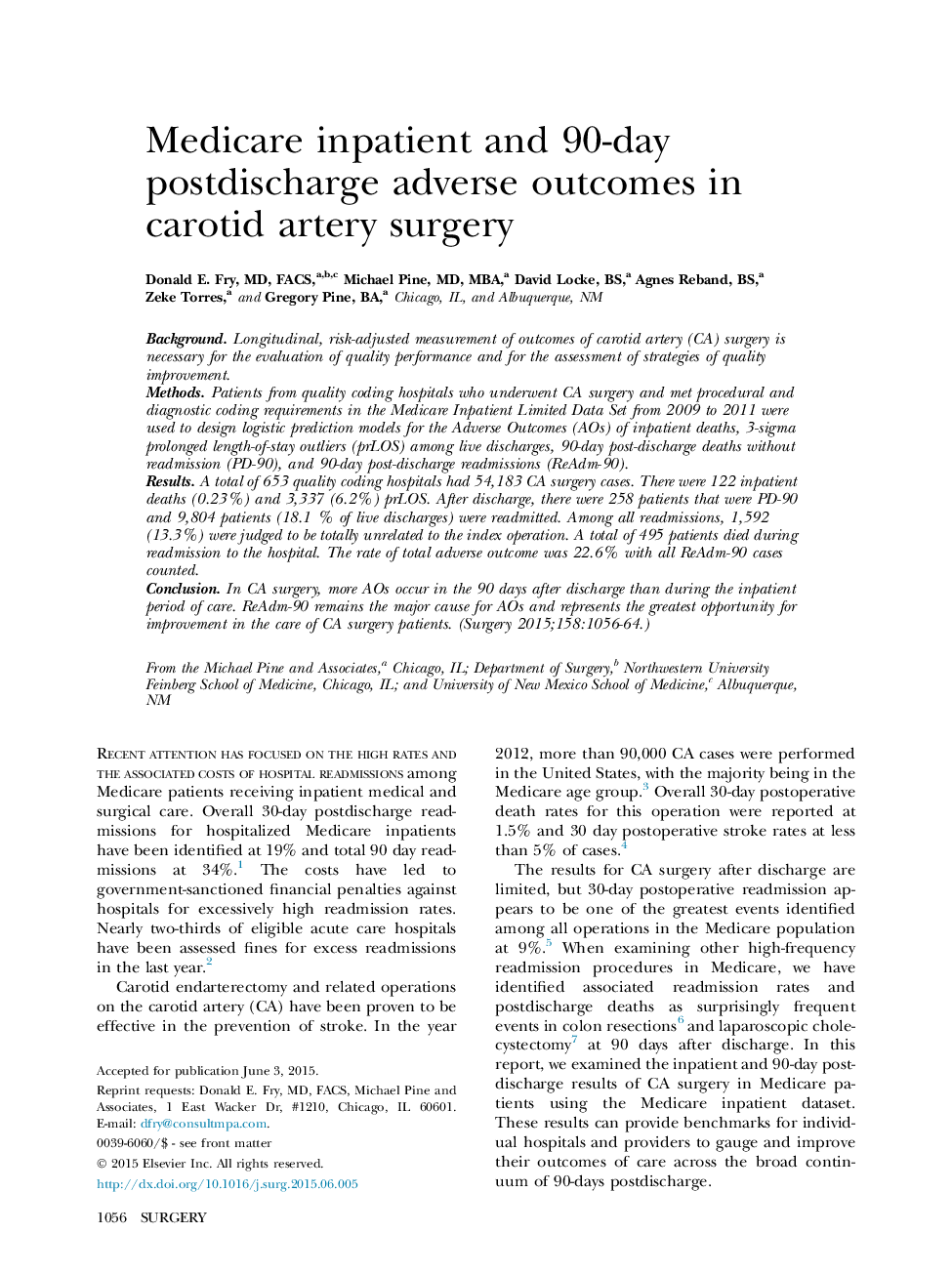| Article ID | Journal | Published Year | Pages | File Type |
|---|---|---|---|---|
| 4306969 | Surgery | 2015 | 9 Pages |
BackgroundLongitudinal, risk-adjusted measurement of outcomes of carotid artery (CA) surgery is necessary for the evaluation of quality performance and for the assessment of strategies of quality improvement.MethodsPatients from quality coding hospitals who underwent CA surgery and met procedural and diagnostic coding requirements in the Medicare Inpatient Limited Data Set from 2009 to 2011 were used to design logistic prediction models for the Adverse Outcomes (AOs) of inpatient deaths, 3-sigma prolonged length-of-stay outliers (prLOS) among live discharges, 90-day post-discharge deaths without readmission (PD-90), and 90-day post-discharge readmissions (ReAdm-90).ResultsA total of 653 quality coding hospitals had 54,183 CA surgery cases. There were 122 inpatient deaths (0.23%) and 3,337 (6.2%) prLOS. After discharge, there were 258 patients that were PD-90 and 9,804 patients (18.1 % of live discharges) were readmitted. Among all readmissions, 1,592 (13.3%) were judged to be totally unrelated to the index operation. A total of 495 patients died during readmission to the hospital. The rate of total adverse outcome was 22.6% with all ReAdm-90 cases counted.ConclusionIn CA surgery, more AOs occur in the 90 days after discharge than during the inpatient period of care. ReAdm-90 remains the major cause for AOs and represents the greatest opportunity for improvement in the care of CA surgery patients.
